Marriage styles vary greatly depending on the country and culture.
In some countries, love marriages are the norm, while in other regions, arranged marriages are more common.
Both “love marriages” and “arranged marriages” have their own unique appeal and advantages.
In this article, we will explore the global statistics on love marriages and arranged marriages, uncovering the cultural and societal values behind them.
We’ll also delve into how marriage perspectives have changed over time and discuss the potential future trends in marriage styles.
As you read, reflect on your own values and see how they compare.
- In-depth comparison of love marriage and arranged marriage rates
- Insight into cultural backgrounds influencing marriage views worldwide
- Predictions and trends for the future of marriage styles
Why Is It Important to Understand Marriage Styles Around the World?
Marriage styles vary significantly across countries and cultures.
While love marriages are common in some countries, arranged marriages are more prevalent in others.
These differences are influenced by historical, cultural, religious, and economic factors.
By understanding global marriage styles, you can gain a broader perspective on different values and perhaps even reflect on your own views on marriage.
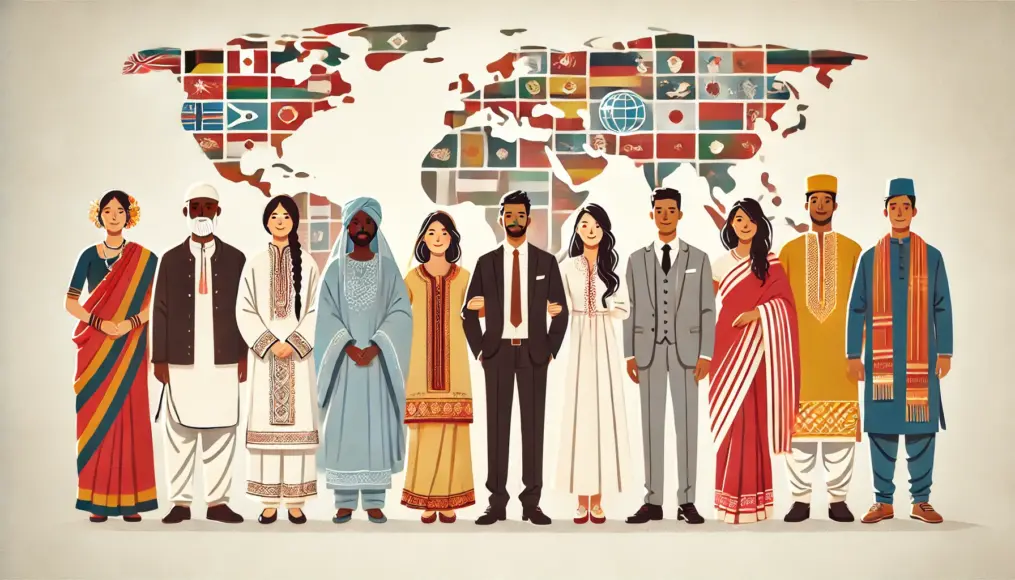
The Definition of Love Marriage and Arranged Marriage
A love marriage is a marriage style where individuals freely choose their partners based on romantic feelings and emotional connections.
The emphasis is on personal choice and compatibility.
On the other hand, an arranged marriage involves families or matchmakers selecting potential partners, focusing on compatibility in values, family background, and stability.
Emotional connections may develop over time, but the initial decision is often influenced by family and social considerations.
- [Love Marriage] Emphasizes freedom of choice, emotional connection, and personal preference
- [Arranged Marriage] Focuses on stability, family support, and compatibility in values
Understanding the pros and cons of each style can help you appreciate different cultural perspectives and find the approach that suits you best.
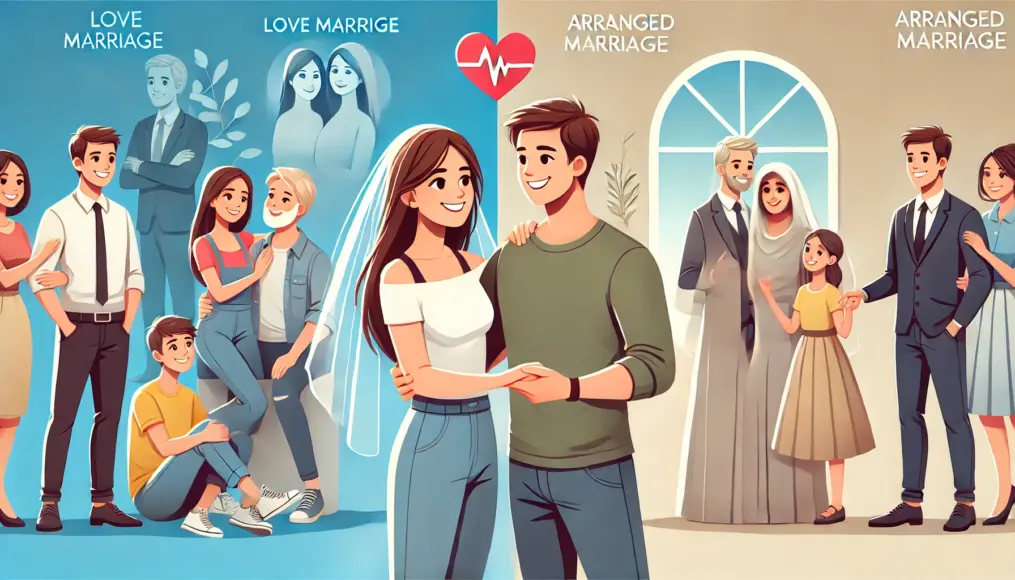
The Background of Different Marriage Perspectives
Why do marriage views vary by country?
This is largely influenced by historical, cultural, religious, and economic factors.
For example, in countries like [United States] and [France], individual freedom is highly valued, making love marriages more common.
Meanwhile, in countries like [India] and [Japan], where family ties and social stability are emphasized, arranged marriages are more prevalent.
- [Cultural Influence] Individualism vs. Collectivism
- [Economic Factors] The emphasis on financial stability leading to more arranged marriages
- [Religious Influence] Religious teachings affecting views on marriage
By understanding the background of marriage perspectives, you can gain a deeper appreciation of international and intercultural relationships, fostering respect for diverse values.
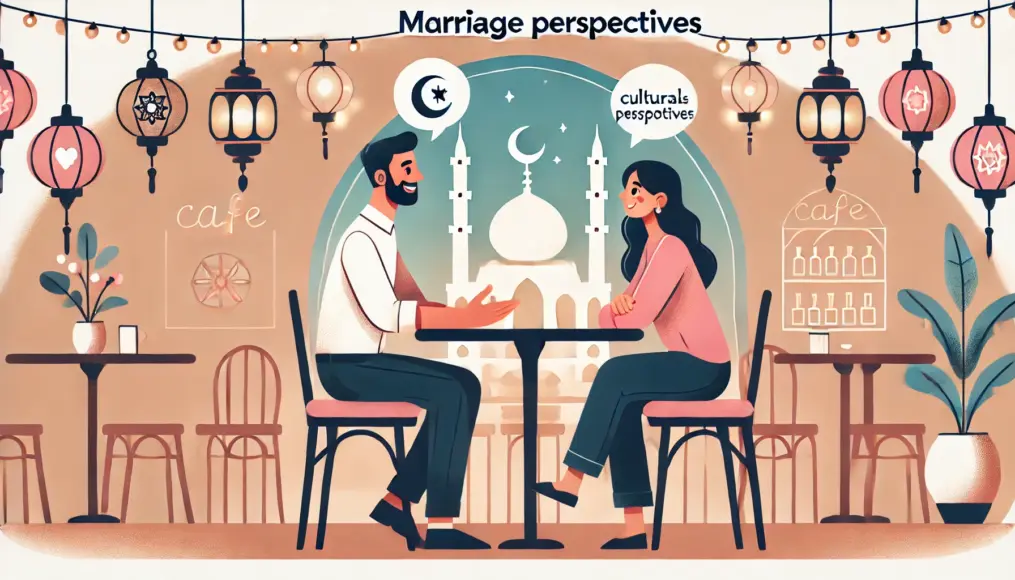
The Ratio of Love Marriages vs. Arranged Marriages Worldwide
There are various marriage styles around the world, but “love marriage” and “arranged marriage” have significantly different characteristics.
Which type is more common varies by country, influenced by culture and values.
Let’s explore the characteristics of countries where love marriages are prevalent and those where arranged marriages are more common.
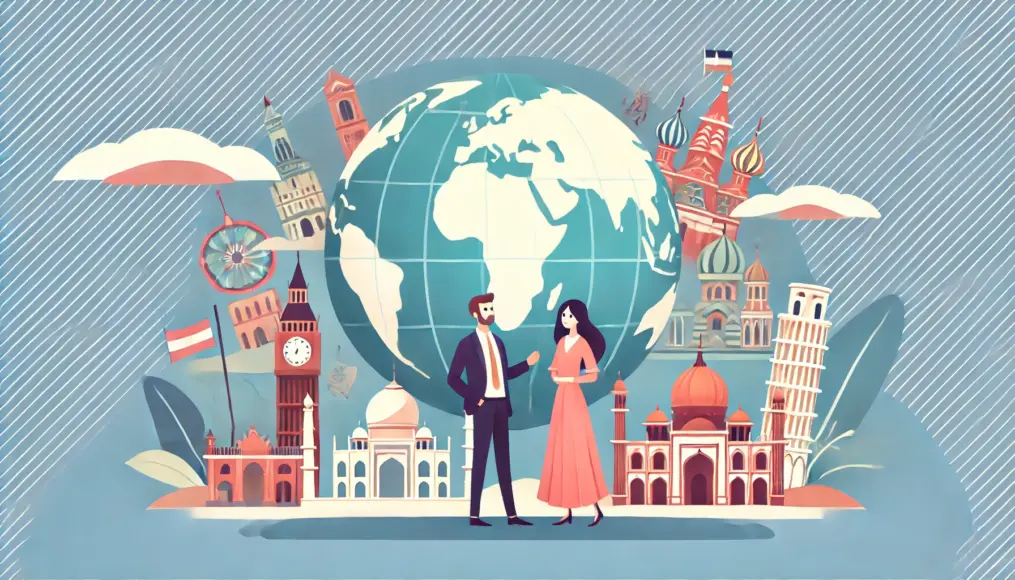
Characteristics of Countries with a High Rate of Love Marriages
Countries with a high percentage of love marriages share some common traits.
Individual freedom is highly valued, and it is common for people to choose their own marriage partners.
For example, the following countries predominantly practice love marriages.
- [United States]
Personal freedom is highly valued, and marriage is considered a natural extension of a romantic relationship. - [France]
A culture of romance is deeply rooted, with more emphasis on maintaining a relationship rather than formal marriage. - [Brazil]
A country known for its passionate love culture, where romance is often the foundation of marriage.
In countries where love marriages are common, marriage is seen as a means to pursue individual happiness, with romantic feelings taking priority.
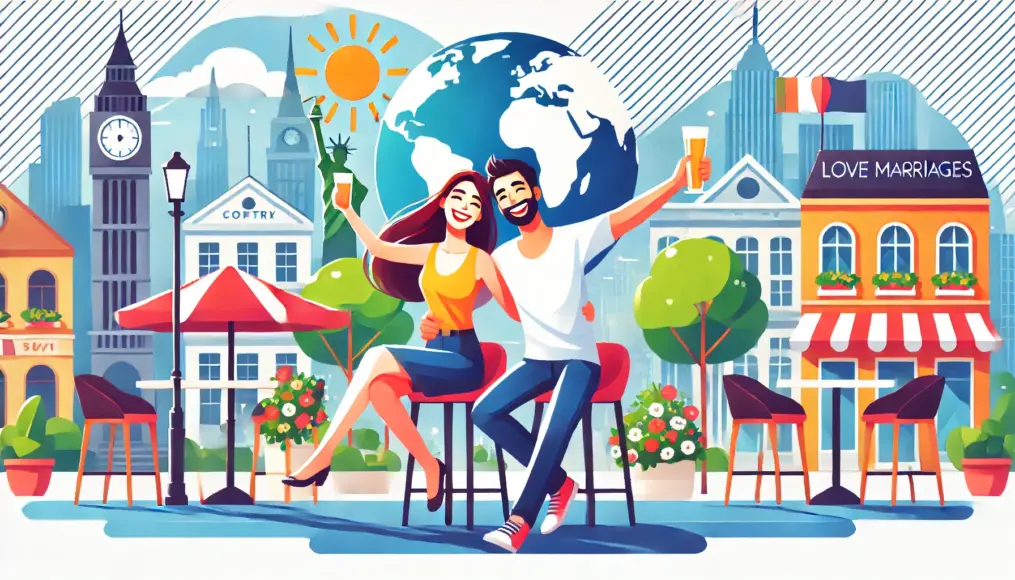
Characteristics of Countries with a High Rate of Arranged Marriages
On the other hand, some countries have a high percentage of arranged marriages.
In these societies, marriage is not solely a personal choice but also a consideration for family and social stability.
The following countries maintain strong traditions of arranged marriages.
- [India]
A culture that values family bonds, where parents commonly select marriage partners for their children. - [Japan]
While arranged marriages were predominant in the past, they still persist to some extent today. - [South Korea]
Social status and economic stability are highly valued, and matchmaking through intermediaries remains common.
In countries where arranged marriages are widespread, marriage is influenced not only by personal emotions but also by social and family expectations.
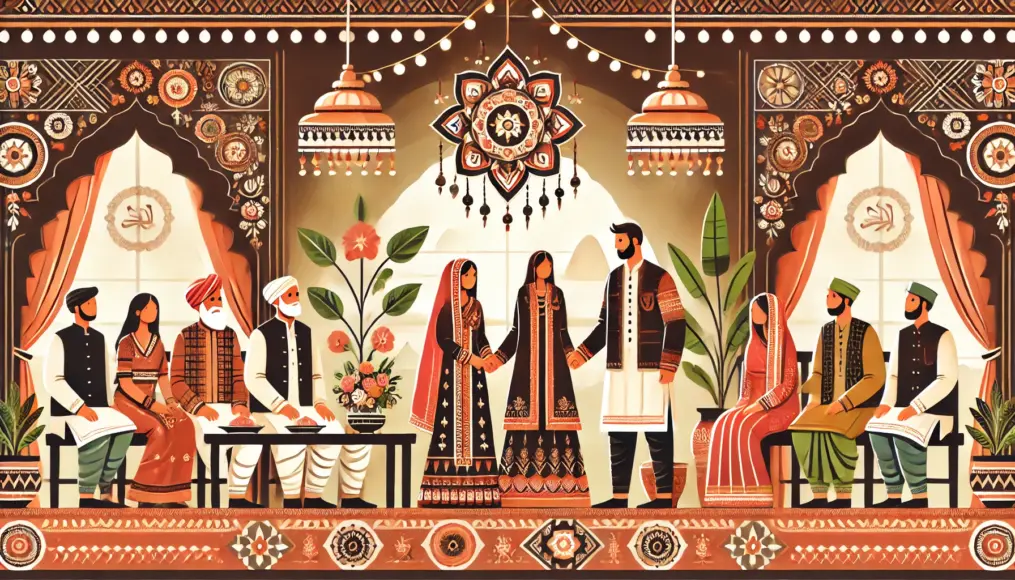
Advantages and Disadvantages of Love Marriage and Arranged Marriage
Both love marriage and arranged marriage have unique advantages and challenges.
There is no definitive answer as to which is better, but understanding their characteristics can help you find the marriage style that suits you best.
Here, we will explore the pros and cons of love marriage and arranged marriage in detail.
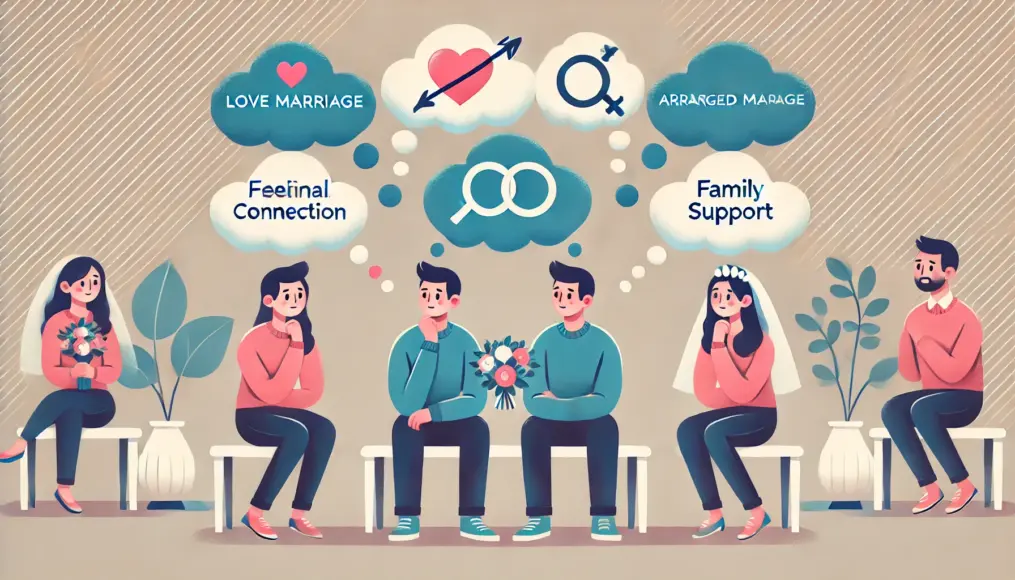
Advantages and Disadvantages of Love Marriage
Love marriage offers the advantage of emotional connection and freedom of choice.
Since the selection of a partner is based on personal emotions and values, relationships tend to be passionate and romantic.
However, on the downside, love marriages can be highly influenced by emotional fluctuations, leading to a higher divorce rate.
When the initial passion fades, the relationship may lack a solid foundation to sustain it.
- Emotional connection leads to passionate and romantic relationships
- Freedom of choice allows for selecting a partner with compatible values
- Prone to emotional fluctuations, resulting in a higher divorce rate
- Relationship foundation often depends on emotions rather than practical stability
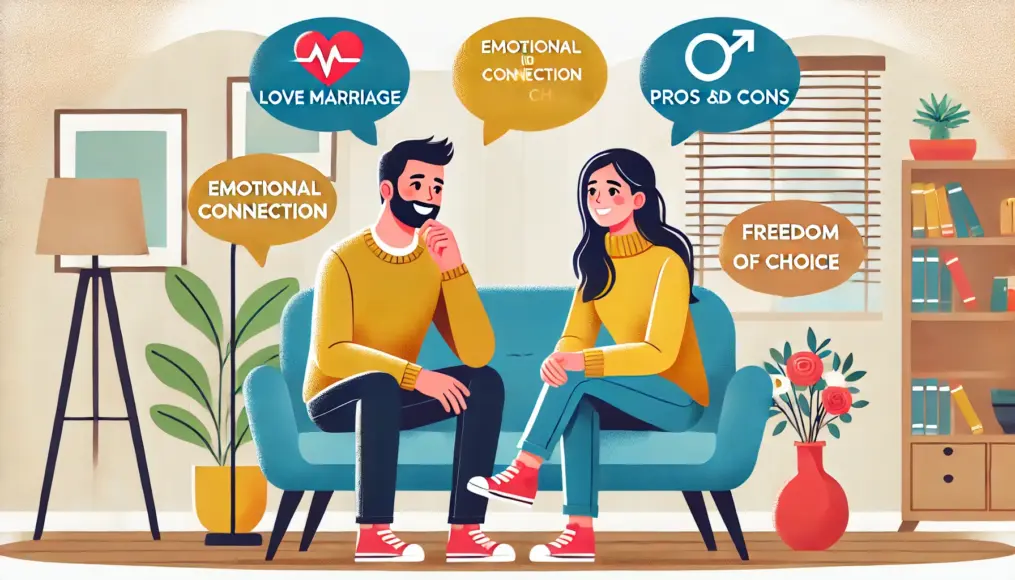
Advantages and Disadvantages of Arranged Marriage
Arranged marriages provide the benefit of family support and value alignment.
Since families and society play a role in partner selection, factors such as financial stability and social status are often considered, leading to a more stable married life.
Moreover, choosing a partner with similar values can help maintain a long-lasting relationship.
However, arranged marriages may limit personal freedom and create pressure.
If the marriage feels more like fulfilling family expectations rather than a personal choice, individuals might struggle with a lack of autonomy.
- Family support and social stability can be beneficial
- Choosing a partner with similar values can help sustain the relationship
- Personal freedom may be restricted, leading to potential stress
- The marriage might feel like an obligation rather than a personal choice
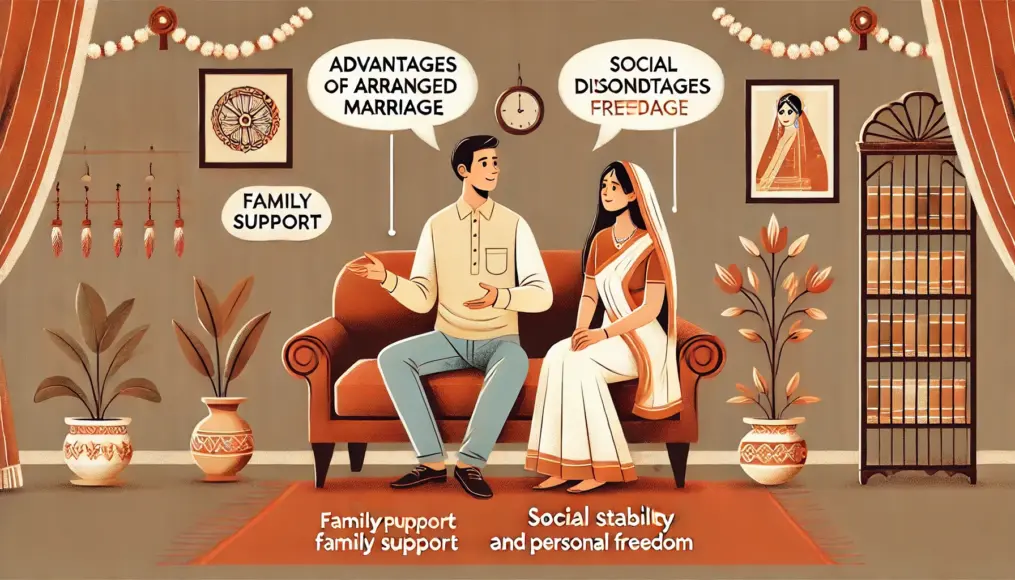
How Will Marriage Styles Change in the Future?
The concept of marriage is always evolving, isn’t it?
With globalization and technological advancements, marriage styles are becoming more diverse than ever.
Let’s explore how marriage might change in the coming years.

Changes Brought by Globalization
As globalization continues, the concept of marriage is crossing borders.
In the past, people mostly married within their own community or culture, but that’s not the case anymore.
Nowadays, international marriages are becoming more common, thanks to opportunities like studying abroad or working overseas.
- 【Increase in International Marriages】
More people are marrying across cultures, influenced by experiences like studying or working abroad. - 【Borderless Values】
Traditional marriage values are blending and evolving through global interactions. - 【Changing Timing of Marriage】
People are prioritizing career and personal growth, leading to a trend of marrying later in life.
As you can see, globalization is creating more flexible options for marriage.
It’s no longer about following rigid rules; it’s about choosing the style that fits you and your partner best.
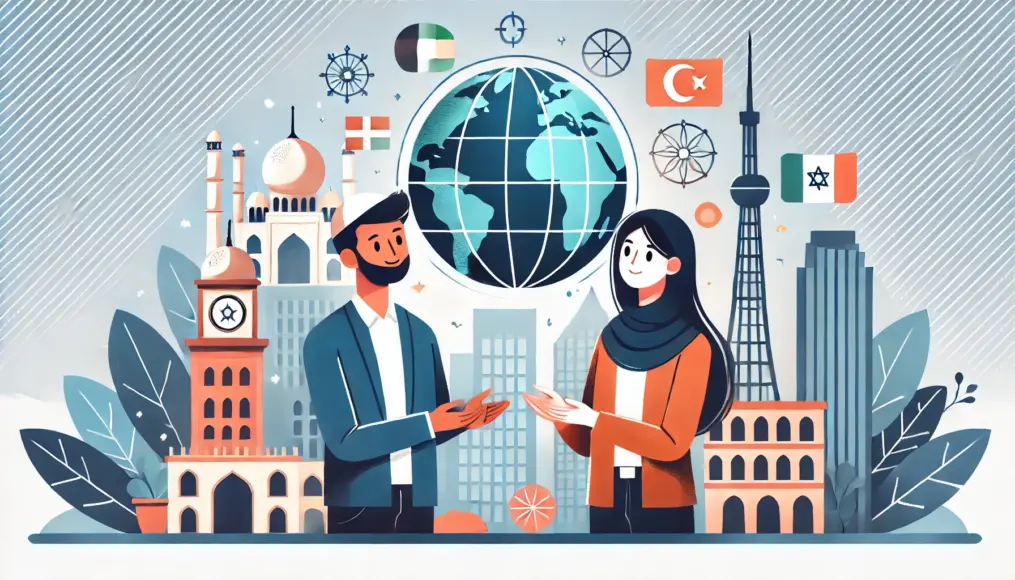
Predictions for Future Marriage Styles
Don’t you think marriage styles will become even more diverse in the future?
We might see more unique ways of committing to a partner, tailored to individual lifestyles and values.
- 【Growing Popularity of Partnerships】
More couples are choosing to live together as partners without formal marriage, valuing companionship over legal status. - 【Advancements in Technology and Matching Algorithms】
AI and matchmaking apps are becoming more accurate, helping people find more compatible partners. - 【Redefining Family Structures】
New family models, such as communities or close friends living together, are gaining acceptance.
Looking at these trends, the future of marriage seems to be all about freedom and individuality.
People will have the opportunity to choose a marriage style that truly resonates with them.
It’s exciting to think about a world where everyone can find their own version of happiness.
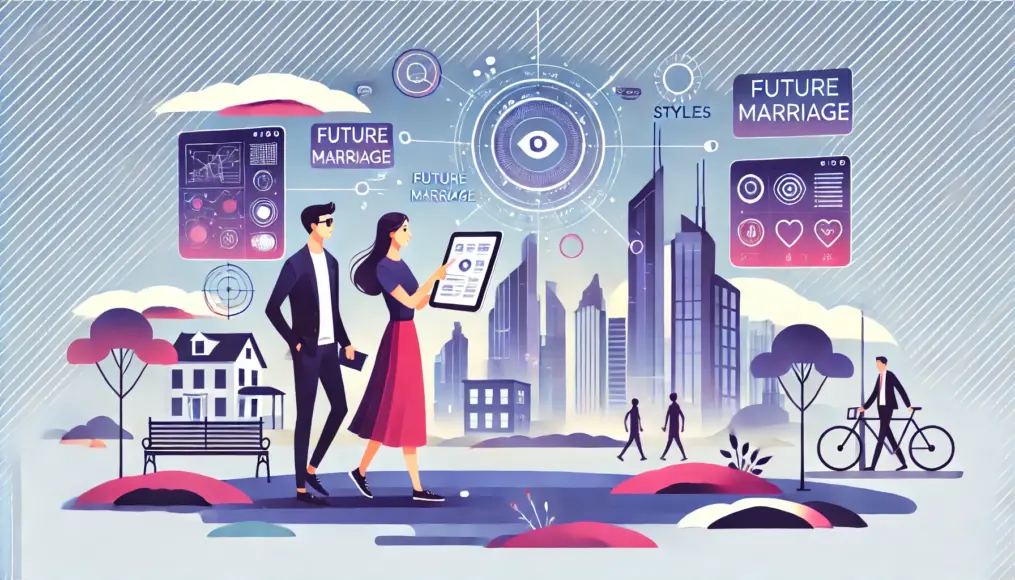
Conclusion
Marriage styles vary greatly depending on the times, culture, and values.
By understanding the characteristics, advantages, and disadvantages of both love marriage and arranged marriage, you can find clues to discover the marriage style that suits you best.
It’s also fascinating to see how globalization and technological advancements are expanding the choices available for marriage.
Marriage is no longer confined to one specific form, allowing people to choose freely according to their values.
What kind of marriage style do you find ideal?
Feel free to share your thoughts in the comments!



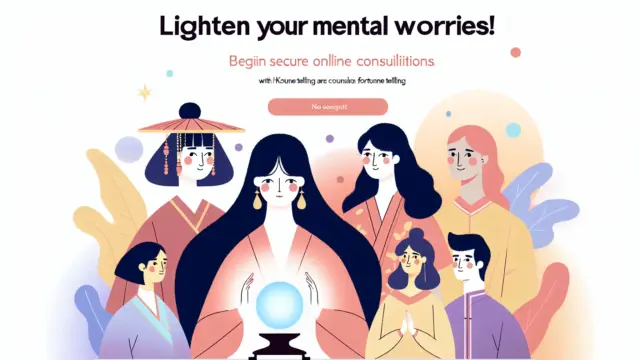
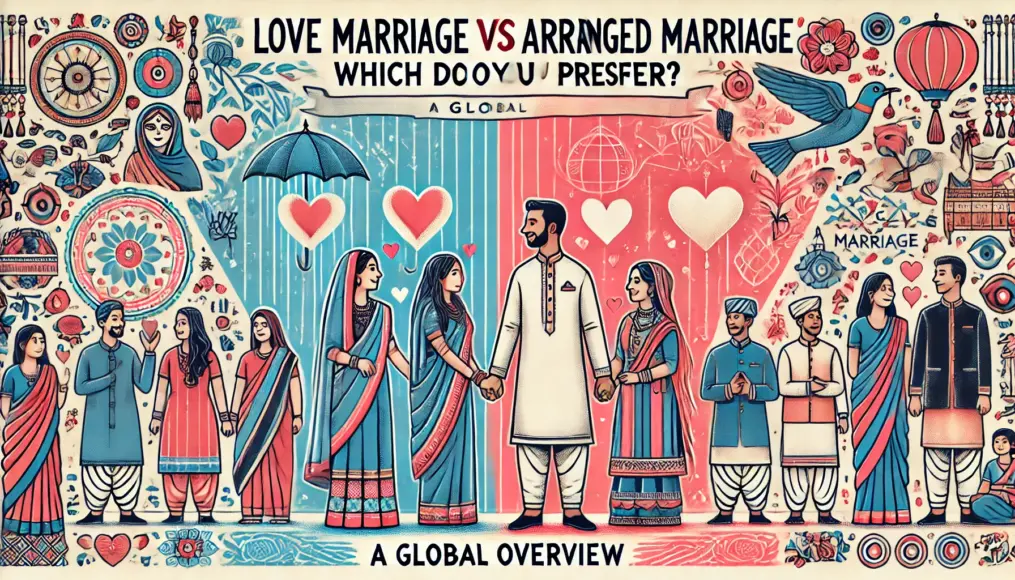



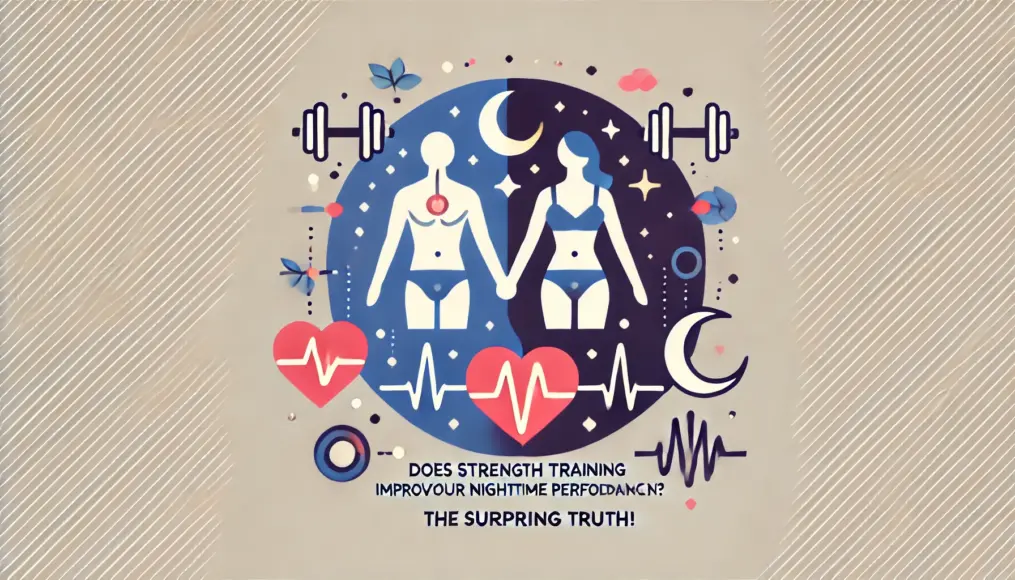
Comment